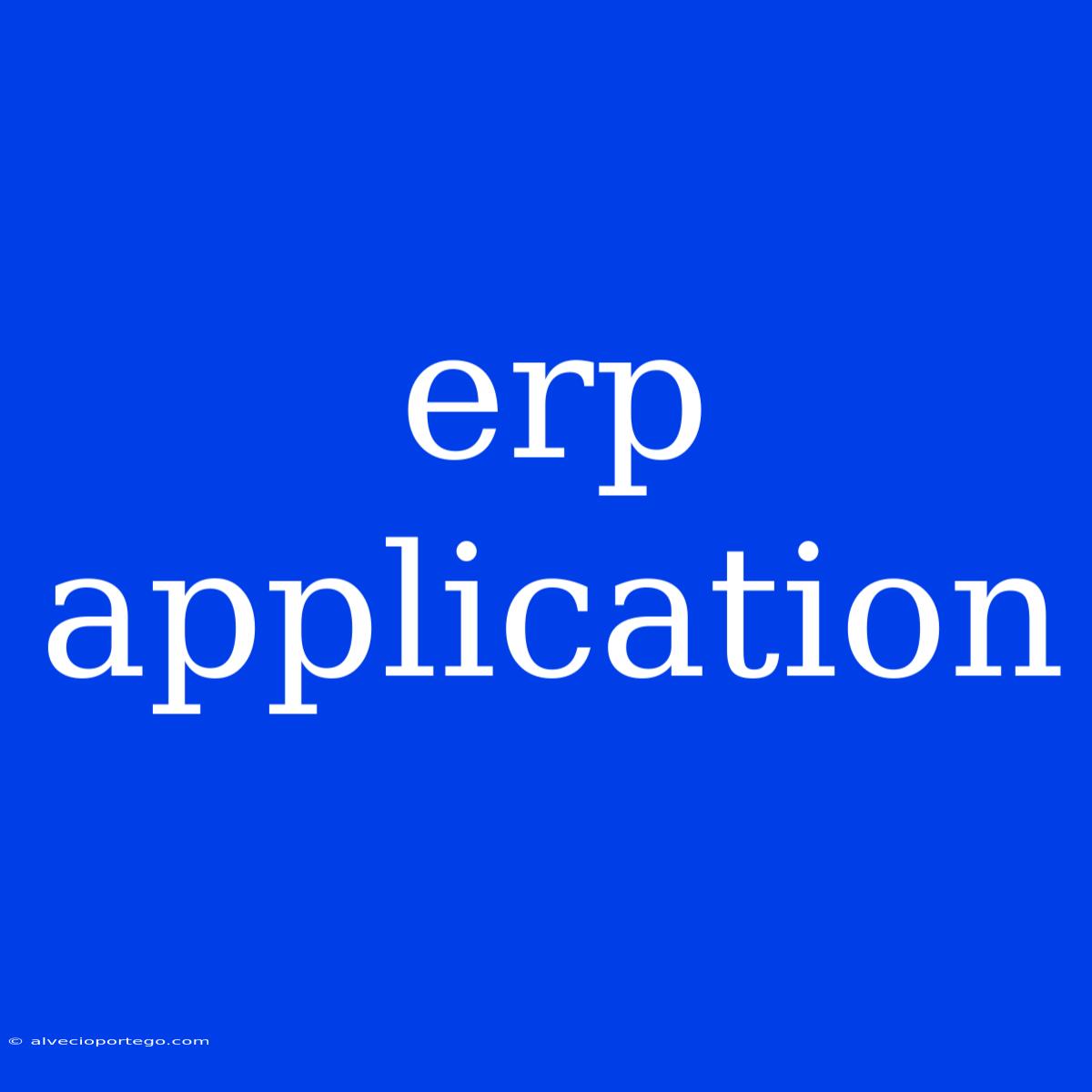ERP Applications: Streamlining Your Business Operations
An ERP (Enterprise Resource Planning) application is a software suite designed to integrate and automate various business processes within a company. By centralizing data and streamlining workflows, ERP applications aim to improve efficiency, reduce costs, and provide valuable insights for better decision-making.
What Does an ERP Application Do?
ERP applications typically cover a wide range of functionalities, including:
- Financial Management: Accounting, budgeting, reporting, and financial consolidation.
- Human Resources: Payroll, recruitment, performance management, and employee training.
- Supply Chain Management: Inventory control, procurement, warehouse management, and order fulfillment.
- Customer Relationship Management (CRM): Sales, marketing, customer service, and support.
- Production and Manufacturing: Planning, scheduling, quality control, and maintenance.
Benefits of Using an ERP Application
Implementing an ERP application can bring numerous benefits to your business, including:
- Improved Efficiency: Streamlining processes and automating tasks can free up time and resources for more strategic initiatives.
- Reduced Costs: Automation can reduce manual errors, minimize waste, and optimize resource utilization.
- Enhanced Visibility and Transparency: Centralized data provides real-time insights into business performance and operations.
- Better Decision-Making: Data-driven insights enable more informed decisions across departments.
- Improved Customer Service: Enhanced visibility into customer data and interactions leads to better customer service and satisfaction.
Selecting the Right ERP Application
Choosing the right ERP application for your business is crucial. Consider these factors:
- Business Size and Industry: Different ERP solutions cater to specific industry needs and business sizes.
- Budget: ERP applications come with varying pricing models, so it's important to determine your budget.
- Functionality: Ensure the selected ERP offers the required features and functionalities for your specific business needs.
- Scalability: Choose an ERP that can adapt to your future growth and evolving business requirements.
- Integration: The ERP application should integrate seamlessly with your existing systems and technologies.
Implementing an ERP Application
Implementing an ERP application is a significant project that requires careful planning and execution. Key steps include:
- Needs Assessment: Define your business requirements and objectives for the ERP implementation.
- Selection Process: Evaluate and choose the most suitable ERP application based on your needs.
- Configuration and Customization: Customize the ERP to your specific workflows and business processes.
- Data Migration: Migrate data from existing systems to the new ERP platform.
- Training and Support: Provide training to users and establish ongoing support for the ERP application.
Conclusion
ERP applications offer a powerful tool for businesses to streamline their operations, improve efficiency, and gain valuable insights. By carefully selecting and implementing the right ERP solution, companies can leverage its capabilities to drive growth and achieve their strategic goals.

